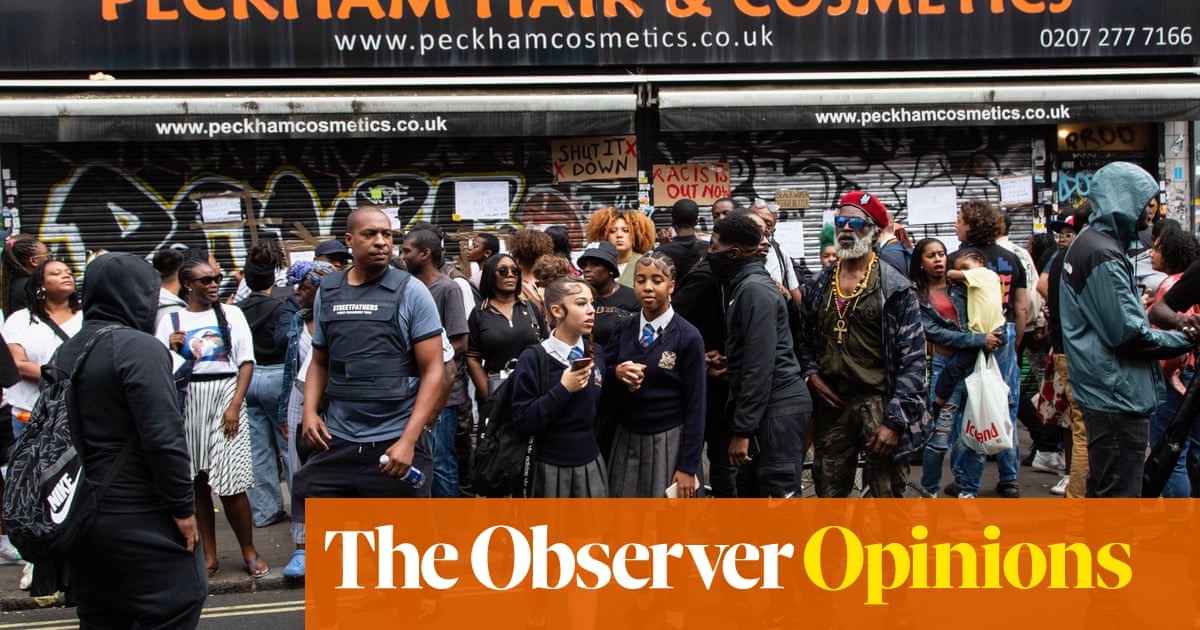
our days ago, a former insider at a London-based thinktank wrote a piece for the Spectator about the forthcoming Chesham and Amersham byelection, and his sense that this little-remarked political episode would soon be over, with the minimum of fuss. “Hopefully then we can stop hearing any rubbish about how the Lib Dems are set to tear down the Conservatives’ ‘blue wall’ in the home counties,” he wrote. “As the campaign has demonstrated, the Lib Dems are miles away from being able to cause such an upset.” He ended with a prediction he evidently felt was beyond question: “The Lib Dems will lose on Thursday, most likely fairly badly, and they will have no one to blame but themselves.”
Election predictions are often a mug’s game, not least in a political climate as febrile and strange as ours is currently. But while the media largely stayed away, the Liberal Democrats’ unexpected success in suburban Buckinghamshire – where their vote jumped by 30 percentage points, while the Tories’ dropped by 20 – went with the grain of a slowly emerging shift that some of us have been following for the past three or four years, which is much cultural as political.
The English middle class and the places where it tends to congregate are changing. The way Brexit has revolutionised Conservative politics is accelerating that shift. And now, there are clear signs that the appeal of the Tories is weakening in places they once took for granted: an apparent mirror-image of Labour’s travails in so-called red wall seats that is in its comparatively early stages, but might turn out to be just as fascinating.
This much we know: since the referendum of 2016, there have been signs of Conservative support starting to fall away in chunks of the south-east of England, and more affluent parts of other regions of the country. Back in 2018, the Lib Dems trounced the Conservatives at local elections in such commuter-belt places as Kingston upon Thames and Richmond. A year later, they ended Conservative rule in Bath and North East Somerset and a corner of the Cotswolds.
Only a month ago, something much more striking happened, when the party made big advances in Oxfordshire, Wiltshire, St Albans, Surrey and Tunbridge Wells (as well as moving from having no seats on Amersham’s town council to taking control). Woven into the same set of shifts is rising support for the Green party in comparable places – Cambridge, East Sussex, Gloucestershire, Suffolk. Labour’s role in this story is arguably more marginal (which is why it may need to start thinking about what some people call a progressive alliance), but it also seems to have made inroads at the Tories’ expense, as evidenced by its progress in the affluent Mancunian borough of Trafford, and such unexpected triumphs as its 2017 victory in Canterbury, repeated at the following election.
I have sampled these shifts that have taken place in some old true-blue heartlands: suburban Surrey, Maidenhead, the town where I grew up in Cheshire commuter-land. Not that long ago, people who lived in such places were largely assumed to be small-c conservative, and fond of the kind of lifestyle choices that went with that kind of outlook: golf, washing one’s car on a Sunday morning, keeping up with the proverbial Joneses. But an increasing share of the English middle class is not really like that any more. The suburbs are getting more ethnically diverse, leaning more to the political left – and filling up with a broad demographic that Conservatism either can’t or doesn’t want to speak to.
Such people’s formative experiences often happened in big cities, whose values and culture they happily imbibed, before they moved out. The expansion of higher education that kicked in under Tony Blair means they are likely to be graduates, who tend to have a broadly liberal view of the world. Their consumerism has an ethical tilt, and they want to do their bit for the environment. Crucially, they also voted remain, and have been repulsed by the kind of shrill, divisive stances that Toryism is always prone to, but which have become an ingrained habit since the arrival in Downing Street of Theresa May. Taking aim at “citizens of nowhere”, pursuing the hardest kind of exit from the EU, and cultivating the kind of political atmosphere that favours attacks on the judiciary and today’s “war on woke” might look like crafty responses to the way politics was changed by the big vote of 2016.
The problem, perhaps, is that if you so zealously pitch yourself at one half of England, you inevitably run the risk of losing the other.
In the years when Conservatives were led by David Cameron and George Osborne, their emphasis on Tory “modernisation” – exemplified by their embrace of equal marriage – showed that they understood some of these changes, and understood that their party had to change. Their project was arguably only skin-deep, though, and the cruel pursuit of austerity meant that their aim of reviving Tory fortunes among people whose view of the party was already darkening was always compromised.
But what has happened since has been a kind of counter-revolution within the party: any anxieties about being seen as “the nasty party” have been blithely sidelined, and a nakedly populist, divisive agenda has been embraced, built on our departure from the EU. The purging of more centrist Conservatives has hardly helped.
Ed Davey, the Lib Dem leader, reportedly visited Chesham and Amersham 16 times. He and his advisers insist that though post-election coverage is pushing the idea that local planning issues and the controversy surrounding the HS2 rail-line were a big part of his party’s win, there were actually much deeper factors at play, and the Conservative vote turned out to be amazingly soft.
Not for the first time, what his party seems to have divined is an overlooked part of the electorate who may soon start to change the political weather. They do not like Boris Johnson, or what he is doing with power. Brexit is still uppermost in their minds. If they are watching GB News, it is only for the laughs. And as people like them now embrace home-working and move in ever-increasing numbers from London to its surrounding areas, they ought to be causing the Conservatives’ cleverer minds no end of concern.












